178 posts
Latest Posts by green-notebooks - Page 2
Would you be able to recommend any how-to books on going zero waste? I'm really upset at all the plastic I have to throw out in everyday life (mostly from food packaging, whether restaurant or grocery store) but I'm not sure where to begin in changing it. If there's a book that describes steps to take, that would be very helpful for me. Thank you!
Going zero waste
Realistic goals:
First of all, good on you for wanting to lessen your waste output!
Second of all, while going zero waste is a really noble goal, it's not always feasible, especially in our current economy. That's nothing you should feel guilty over. That's just a fact.
Those pictures of people who can fit a year's worth of trash in one mason jar look great, but it's okay if you can't do that. For example, while I personally try to avoid having to throw out plastic, I'm also very grateful for the fact that plastic allows me to have an emergency asthma inhaler on hand at all times. Another example could be how bulk shopping can help cut back on waste, but might not be feasible due to financial or physical constraints.
That being said, replacing some single-use items is still better than doing nothing at all. Don't let perfectionism stop you!
It's important to set realistic goals. For example: you mentioned you'd like to try and avoid waste from food packaging. If you often eat on the go, you could keeping a set of reusable cutlery in your bag so you don't have to use single-use utensils every time you buy food. You could check if apps like Too Good To Go or imperfect produce boxes are available in your area. Maybe you've got a local farmer's market or a bulk shop or a community garden around. Maybe your supermarket allows you to bring your own produce bags while shopping. You could try looking for brands that use less or recycled packaging if your financial situation allows for that. If you enjoy cooking, you could look into bringing your own food on the go more often, or learn how to freeze or preserve food.
You don't have to do all of these: pick out ideas that seem like a good match for your personal situation. Start with small changes and turn them into habits, rather than going all-out from the start.
Resources:
The one book I often see referred to when it comes to zero waste is "Zero waste home: the ultimate guide to simplifying your life by reducing your waste" by Bea Johnson. I haven't read the entire thing yet, but I've read parts and it's a handy place to start. If your local library doesn't have a copy available, you can borrow a digital version for free on Archive.org.
While not necessarily focused on zero waste, I quite like Marie Kondo's philosophy too. The manga version of her book is an easy read if you want something quick to get started with.
Not books, but Shelbizleee and Sustainably Vegan on YouTube also run interesting zero waste channels.
Take what you personally find useful from resources like these, but don't feel obligated to follow them to the letter. Eco-anxiety can sometimes push us to try things we're not comfortable with or which aren't safe for us, so it's important to remain mindful of your personal boundaries.
I'm sure others can add more book recommendations to this post. :)
The five R's:
One way to get started is to take a look at the five basic zero waste principles.
There are different versions of the zero waste "R" list, but the one cited the most is the five R's of zero waste: refuse, reduce, reuse, recycle, and rot.

(Image source) [ID: an inverted pyramid with five steps, reading from the top to the bottom: "Refuse, reduce, reuse, recycle, rot".]
Refuse: a lot of waste comes from things we don't really need. Will you actually wear that t-shirt that's on sale right now? Do you need another free pen even though you still have ten unused ones lying around at home? What about your junk mail, do you actually enjoy receiving all those flyers? The idea is to re-evaluate the objects that come into your possession, and to refuse the ones you won't use.
Note: the "refuse" and "reduce" principles can be stressful when you've grown up in an environment that was lacking certain material needs, or when you still find yourself in this situation. Take small steps, stick to your personal boundaries, and be mindful of your (mental) health.
Reduce: a lot of us own more than we actually need. If you find you've got objects you barely use, e.g. shirts you haven't worn in years or unused craft materials bought on a whim, ask yourself if you really need them. Would you miss them if you got rid of them, or would you barely notice? Do they make you happy, or do they just take up space? Maybe it's time to find a new home for these items.
Note: there are certain things in life we just really need, even if some of those things might seem frivolous to others. Don't get rid of things you might regret later, or that you actually need even though all the zero waste sources say you could probably do without. Everyone's situation's different. When you do get rid of things, don't just throw them out even if you plan on replacing them with sustainable alternatives: this will just create more waste. Use what you have first, and consider selling, donating or gifting items you don't need any more.
Reuse: one way to avoid waste is to reuse an item until it falls apart, or to find new uses for something. Mend your clothes, repair your stuff, reuse packaging when shipping parcels, cook with food scraps, shop second-hand,... Once you've finished something, check if you can replace it with a reusable alternative instead of buying it again (e.g. water bottles, reusable cutlery, fabric tote bags,...).
Note: be mindful of your health. Sometimes, things just have to be replaced!
Recycle: recycling isn't perfect, but it's important. Look up your local recycling policies, and sort your trash accordingly.
Rot: when organic trash goes to landfill, it will likely decompose in a way that will make it release a lot of methane. When we compost it, it will turn into plant food. If you've got access to an outdoor space, start a compost heap. If you've got a balcony, you could try vermicomposting or bokashi. If you don't have access to outdoor spaces at all, you could try indoor composting (if you're comfortable with that) or find a neighbour who composts and who'll take your scraps.
Conclusion:
Reducing our waste output is a great way to add our proverbial drop to the bucket. You don't have to be a minimalist or stop your waste output entirely to help out: going a 100% waste-free is awesome if you're able to, but 10% is better than 0%, and 10% is nothing to sneeze at!
Don't let perfectionism stop you. Do what you can, and don't beat yourself up over what you can't.



Full color version :)
if you’re interested in mutual aid and aren’t sure where to start, i can’t recommend enough joining a local Buy Nothing group. in a nutshell, it’s a totally free gift economy— people give from their own abundance and ask for what they need. it’s indispensable as a recent grad household— we got the majority of our basic furniture, as well as an AC unit through the group— but what i find particularly wonderful are the ways other forms of community aid popup through the group.
i’ve seen people organize meal trains for strangers. people fleeing from domestic violence have gone from a suitcase of possessions to a fully stocked house in 48 hours. home hospices being set up with goods from six different households. cookbook lending. distribution of windfall apples and tomato harvest overabundance. grocery pickup for ill folks. people looking out for listings for others. everything from bread to baby carseats to house paint to pet food.
and much of it is done between strangers, often between people who would not recognize or identify with the term “mutual aid”. it lowers waste, goods go directly to people who need them, and it avoids the sometimes dubious morality of the thrift shop circuit. i’d really recommend it.

“One of the biggest reasons our personal lifestyle choices matter when it comes to the climate crisis is that what we do changes us. And the other big reason is that what we do and say changes others, too.” Behavioral contagion is a real psychological phenomenon and it spreads at a much faster rate than you would imagine. In fact, behavioral contagion can be a much more effective way of getting people to change their behavior than rationally explaining to them why a particular change is in their best interest. When people say that personal changes still matter, this is the kind of thing they are talking about. Yes, maybe one person recycling or adopting solar panels or building a pollinator garden in their backyard doesn’t do much in the scheme of the greater problem, but many of these small actions together can build into something that really, really does. Even small, personal changes matter, because taking action to fight climate change changes you and it changes your community.

Solarpunk Activities for the Socially Anxious
- Read up on the philosophical background(s) of solarpunk. I’ve got a bibliography page if you are looking for more. - Figure out which plants that are indigenous or endangered in your area. Read about their history (and if you can make seed bombs.) - Enjoy Alan Watts lecture on nature - Make a herb drying rack by using string and push pins. You can eat, burn or drink tea from the herbs. - Consider growing food from your scraps - Watch a Ted Talk on Conservation - Draw nature, real or imaginary. Take time to map out fantasy lands. (Think about it as an environmental vision board) - Consider if composting might be right for you - If you have houseplants, learn how to propagate them (or even just take the time to learn more about them…their history, and how best to care for them). If you do want to learn how to propagate, I suggest starting with succulents. They are hardy, fun, and fairly cheap. -Learn how to Talk to Trees with Charis Melina Brown - A National Geographic explainer on how trees talk to each other. - Listen to this amazing, free, nature meditation with Jessica Snow
It’s a Native American planting technique that, honestly is genius. It’s called companion planting. You grow the corn first and then when it’s about knee-high, you add a runner bean. Once the beans have sprouted, you plant either summer or winter squash. The corn offers stakes for the beans to climb up and the squash shades the ground to prevent weeds from growing. It’s a really amazing way to nourish the soil and grow a great variety of different vegetables.
hey if you’re in the U.S. and use food stamps or know somebody who does i found this online cookbook that has recipes for eating well on approximately $4/day :o)
Honestly if your response to "I dont have many skills that would be useful in a post-capitalist society" is "so I guess I'll just be pursuing my intellectual hobbies as my contribution to my community" instead of "so I guess I'll be doing dishes in the cafeteria/janitorial work/manual labor" you should really reconsider how you come at the very concept of work and society as a leftist. Is socialism no longer appealing if you have to do the work you previously took for granted? Is the liberation of the proletariat not worth it if you have to contribute something besides your dream job in academia or leading support groups? Are you really "too good" for "that type" of work, even if it is for a world where no one starves?
we will still have hobbies/run d&d/learn other languages under socialism - in fact, we would likely have far more time to pursue them than under capitalism - but when we think of our future labor, we ought to consider the "menial" tasks that keep society running; loading boxes onto trucks, cooking in a factory kitchen, packaging medical supplies for distribution, building new homes as a worker and not an architect. these jobs will never disappear, and to assume that someone else will do them while you lead workshops or go to school to become a trained professional is to announce your continuing loyalty to petite bourgeois ethics. The dream of socialism is not a fantasy where you continue to do the exact same thing you want to do under capitalism, but now with a clear conscience about it. It's to build a better world as one global movement, to lift up the most oppressed and downtrodden from the muck; a task which requires, above all else, heavy and thankless work that we must be prepared and happy to undertake if we ever hope to succeed.
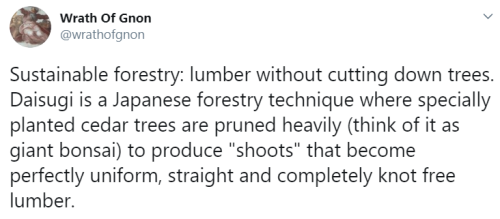
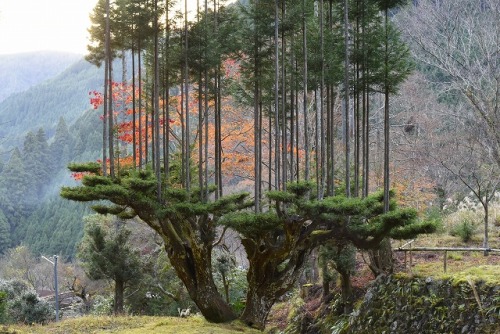
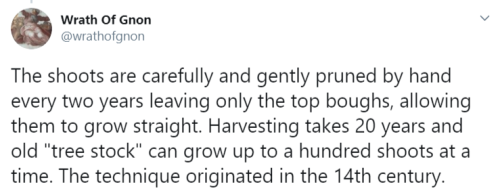

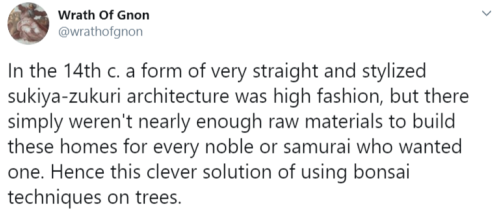
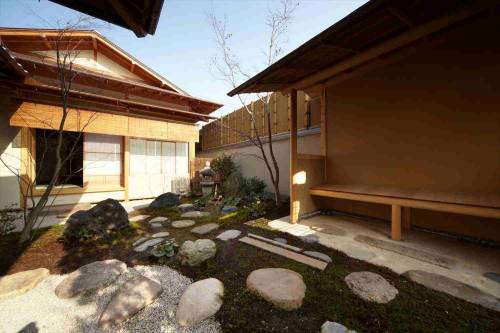


Attention all farmers, gardeners, garden dreamers & wanna-be’s:
Johnny Select Seeds has a Growers Library on their website that is filled with tons of free information about growing herbs, fruit, veggies, flowers, you name it!
Need to know your hardiness zone? They have maps!
Want to know how many seeds you need to buy to fill your growing space? They got a calculator for that!
Want to find out what it takes to build a (not kidding) gothic cathedral 14 ft growing tunnel? They have a list of parts needed and where to buy ‘em!
Ever wondered what the 5 factors affecting cut flowers vase-life are? Well dadgum it if you can’t find out there!
For free!
i think some of the phrasing we use when discussing human environmental impact wrt energy production and agriculture and human habitation can influence the way we think about these things
when we discuss certain energy production methods or agricultural methods or architectural methods or any other elements of human habitation of a given area as “disruptive” to the environment, without sufficient context for what that means, it sets up this dichotomy where our habitation is either disruptive to the environment OR has no effect on the environment, and i think for many reasons thats obviously not a healthy or realistic way to frame it
as human beings, we are organisms, we are part of nature, we are PART of our environment, we are not separate from it, we are not above it. human habitation of an environment will have effects on our environment, in much the same way that ANY organism inhabiting an environment will necessarily affect its environment
so framing it as “are we going to be disruptive to the environment in the way we inhabit this space, or are we going to leave the environment be” is, in a way, setting us up for failure from the start. as long as humans live and exist in an environment, we WILL have an impact, so we need to question what kind of impact we want to have, what kind of an impact were willing to have
this isnt to say that things we do that are normally called disruptive to the environment are suddenly all okay, or that everyone calling them bad is engaging in this kind of dichotomy. hydroelectric power is often called disruptive and it IS, it has massive detrimental effects on local ecosystems, monoculture farming is called disruptive and it IS, this is not apologia for these systems
but i think when discussing possible solutions and alternatives, it often gets framed as “well, will this have an environmental impact, cause we dont wanna have an environmental impact” and im sorry but the answer is that any large scale energy production, any large scale food production, any large scale human habitation IS going to have an environmental impact, its not a question of impact or not, its a question of what kind of impact, how will this impact local species, how will this impact climate, how will this impact local weather systems, how will this impact soil, how will this impact erosion, its COMPLICATED
and the impact isnt always negative, we as humans can provide for ourselves and help shape the world we live in in ways that are BENEFICIAL to the world around us
we can live in harmony with nature, but living in harmony with the world doesnt mean isolating ourselves from cause and effect
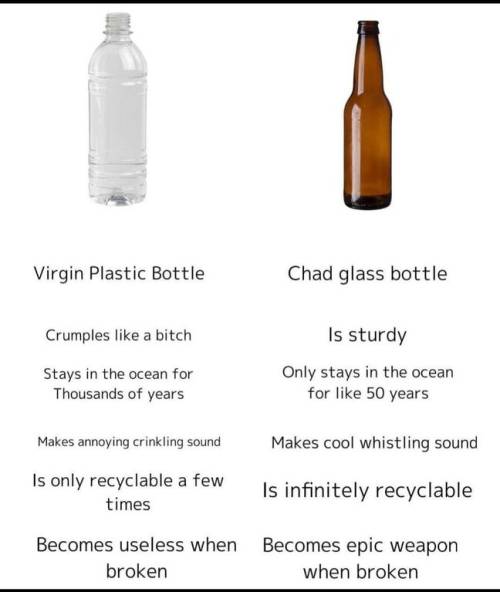
Is also musical instrument
In all honesty, I’m assuming a 4-5% polling error in Trump’s favor. People have dismissed the “Shy” Trump voter. But, here’s the thing on that, I think someone in the burbs who wants to keep a reputation and all that and after everything that’s happened in the Trump Presidency (especially this past year), do you think they’d be going out and loudly declaring their love for Trump or even telling a pollster that? I think when these people get into the privacy of a voting booth (or the comfort of their own home for a mail in ballot), their ideology, partisanship, and/or reactionary tendencies will override and they’ll vote for Trump. They’ll save face at MacKaeylynanie’s Soccer practice (or zoom equivalent) and say they aren’t voting for Trump, because it’s embarrassing for them, but they’ll do it anyway.
So 4-5% in Trump’s favor. Enough to move Pennsylvania and Florida to Trump, but not Michigan or Wisconsin. And I think that’s really where we are. A coin flip.
I think more people left of the American center need to do this. You need to mentally prepare yourself now on the very real possibility of a Trump win. I’m serious, I’m genuinely afraid for someone of y’all’s mental health if this breaks bad.
i learned that Binghamton University researchers have been working on a self-healing concrete that uses a specific type of fungi as a healing agent. When the fungus is mixed with concrete, it lies dormant until cracks appear, when spores germinate, grow and precipitate calcium carbonate to heal the cracks (x)

15 September 2020: Largest remaining Arctic ice shelf falling apart.




August 2020: Last intact ice shelf within Canadian borders falls apart.





Between July 30 and August 4, the Milne Ice Shelf collapsed into the Arctic Ocean. As Canada’s last fully intact ice shelf, it was estimated to have shrunk the remaining mass by 43 percent, losing more than 30 square miles of land area, which is bigger than the size of Manhattan. […] Located in Canada’s largest and northernmost territory, Nunavut, the shelf is thought to have collapsed mostly because of above-normal temperatures for the region during July 2020, 9 degrees Fahrenheit warmer than the established 30-year average. [Text from NOAA press release. “Canada’s Milne Ice Shelf Collapses.” 12 August 2020.]

Earth is truly healing





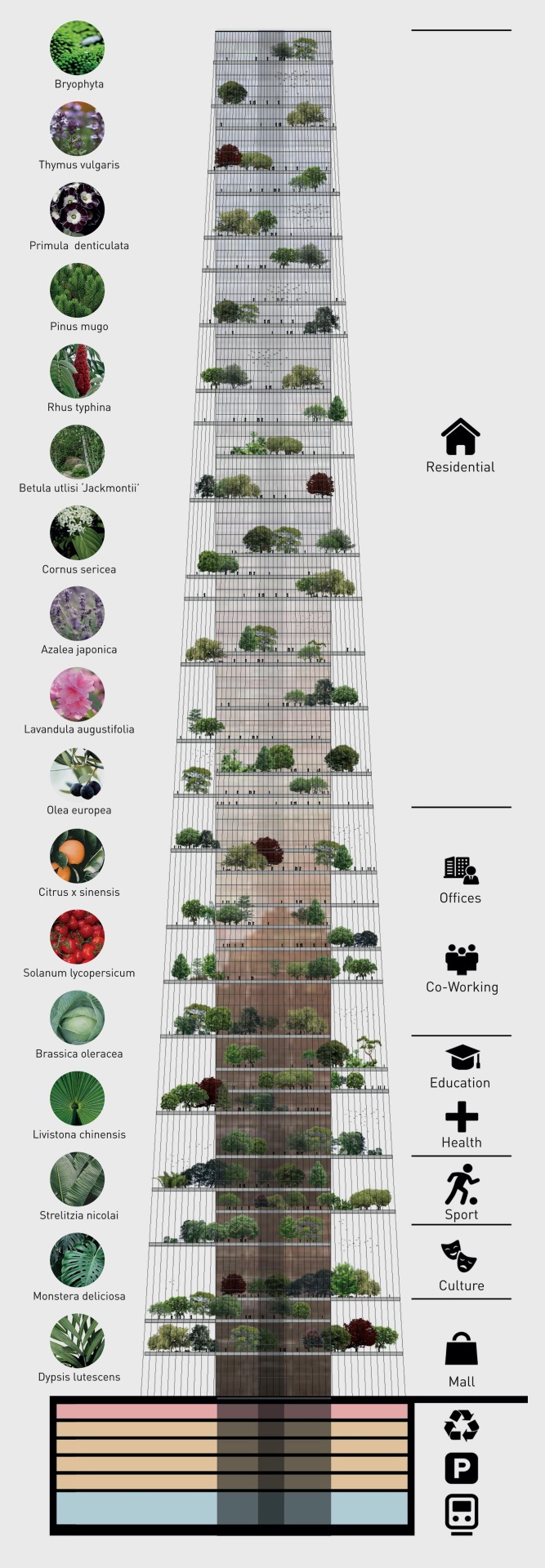



‘Skylines,’ New York, United States,
Lissoni Casal Ribeiro for Skyhive 2020 skycraper Challenge
Inspired by nature, the concept proposes a complete, self-sufficient ecosystem. the multi-use tower collects rainwater and gathers energy from the sun and the wind, transforming it from its tensioned cables into electricity to be used by inhabitants.

“Is it possible to turn things around by 2050? The answer is absolutely yes,” says Kai Chan, a professor at the Institute for Resources, Environment and Sustainability at the University of British Columbia.
Many scientists have been telling us how the world will look like, if we don’t act now. However, others, like Chan, are tracking what success might look like.
They are not simply day-dreamers either. They aren’t being too optimistic. They are putting together road maps for how to safely get to the planet envisioned in the 2015 Paris Agreement, where temperatures hold at 1.5 degrees Celsius higher than before we started burning fossil fuels, this article from July states.
“Three decades is enough to do a lot of important things. In the next few years—if we get started on them—they will pay dividends in the coming decades,” says Chan, the lead author of the chapter on achieving a sustainable future in a recent UN report that predicted the possible extinction of a million species.
Making these changes won’t mean years of being poor, cold and hungry before things get comfortable again, the scientists insist. They say that if we start acting seriously NOW, we stand a decent chance of transforming society without huge disruption.
No doubt, it will take a massive switch in society’s energy use. But without us noticing, that’s already happening. Not fast enough, maybe, but it is. Solar panels and offshore wind power plummet in price. Iceland and Paraguay have stripped the carbon from their grids, according to a new energy outlook report from Bloomberg. Europe is on track to be 90 per cent carbon-free by 2040. And Ottawa says that Canada is already at 81 per cent, thanks to hydro, nuclear, wind and solar.
Decarbonizing the whole economy is within grasp. We can do this.
“If we have five years of really sustained efforts, making sure we reorient our businesses and our governments toward sustainability, then from that point on, this transition will seem quite seamless. Because it will just be this gradual reshaping of options,” Chan says, adding: “All these things seem very natural when the system is changing around you.”
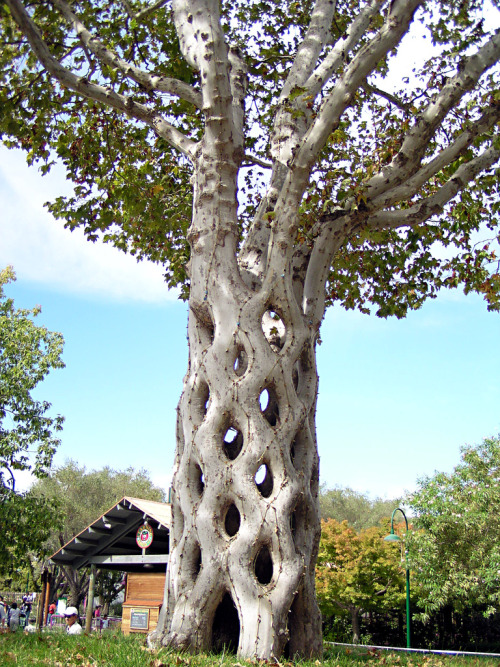
Circus Tree: Six individual sycamore trees were shaped, bent, and braided to form this.
the ideal of “farms everywhere in every garden!!1!” is a huge selling point of the solarpunk and self-sustainablity communities, especially with farmcore/cottagecore and nature aesthetics being more popular nowadays.
however these posts often overlook a few things
1) we already overproduce food, we don’t need more farms we need better farm and food management.
2) not everyone can farm or wants too. Space, the local environment, disabilities, and lack of interest needs to be acknowledged more. I’m awful with plants no matter how much i love them, and i am certain there are plenty more people who would agree.
3) the idea of farms for everyone and the aesthetic of “everyone having their little plot of land” is not community driven, and sadly comes from a place of colonialism. YES a cute lil cottage with a chicken pen out the back and a garden out the front is cute, but this is not possible for everyone on the planet.
4) NATURAL DIVERSITY IS VERY IMPORTANT. instead of making everyones garden into a food forest, we should aim to grow more native plants and help cultivate the natural environment.
5) not every country is the same, we have our own biodiveristy, and often these posts are *very* american/american based
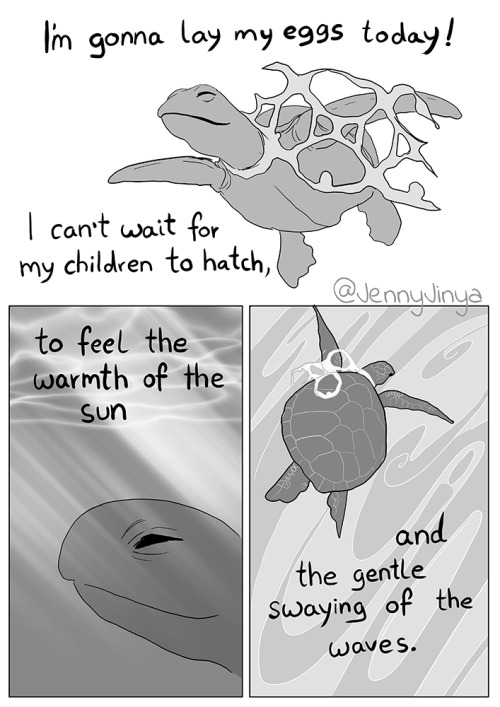





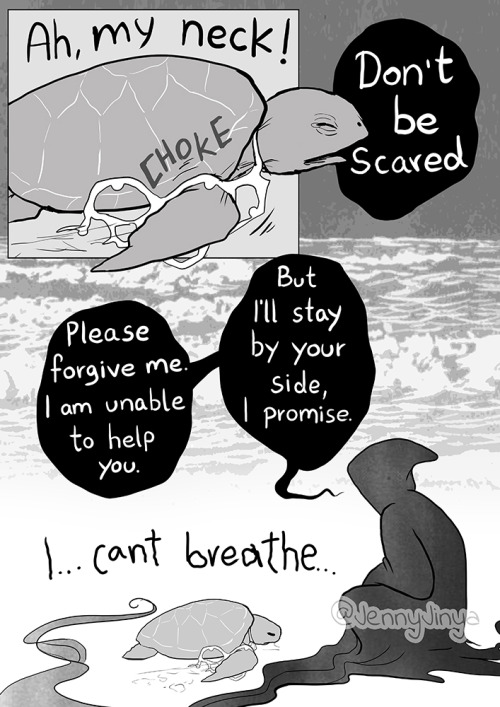
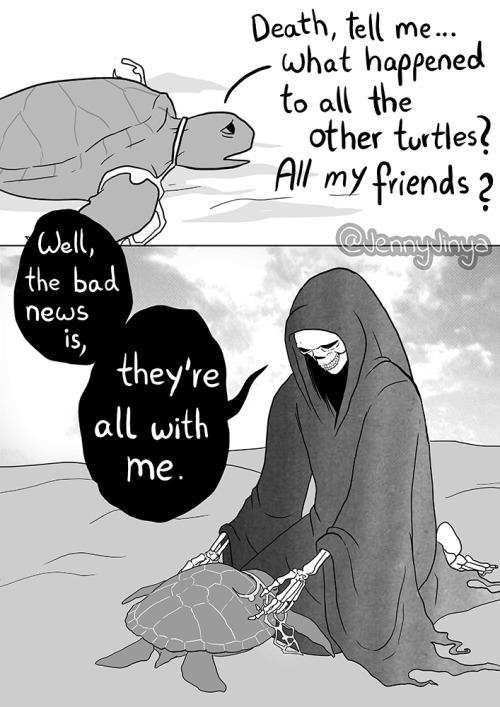


I really wanted to draw a comic about green turtles ;_; they’re facing so many hardships and are classified as endangered. I want this issue to get more attention.
Want to know how you can be a part of the solution in fighting and defeating climate change?
TED-Ed has partnered with the United Nations to make a 30 day challenge to teach you everything you need to know about the climate, the environment and much more (this comes in handy in debates, talks with people that aren't aware of why we should protect the Earth, in knowing what to ask the governments when protesting and many more situations). Knowledge is power and power is what we need if we want to achieve our goals.
They already got to day 13 but the videos are short so you can catch up by watching a few a day. Enjoy!

actually you know what im gonna infodump about permaculture and sustainable farming for a minute bc it’s been my main hyperfixation for a while and y’all really Ought to Know This because it can, in fact, give you a green thumb as well as extra food to eat, is very cheap, and it’s extremely time management friendly. i only need to work on my garden twice a month, maybe more during drier seasons/if i get more plants.
(also correct grammar and spelling below bc i don’t know about you but i can’t read otherwise.)
Keep reading

How to make your own low-tech vertical farm
The Belgian professor Willem Van Cotthem seems to have designed a do-it-yourself vertical kitchen garden system that truly deserves the low-tech label. On his blog, “Container gardening”, he explains how to transform normal plastic bottles into efficient containers (and a container rack) for growing all kinds of plants, even young trees (to be transplanted when reaching sufficient height). The beauty is that the water supply can be automated without the use of electricity
Read more…
A green beginning
There are tons of benefits to having a community garden: stronger sense of community, promoting healthy eating, learning what it really takes to grow your food. It’s also a great way to make gardening a possibility for those living in urban homes with less yard room, and to create a healthy town center for citizens of all ages.
But where should you start if you’d like a community garden of your own? We chatted with Rodney Spencer, the executive director of City Slicker Farms, which provides community gardens for West Oakland residents, to hear his top tips on how to get started.
"She will take it back some day." -Pink Floyd



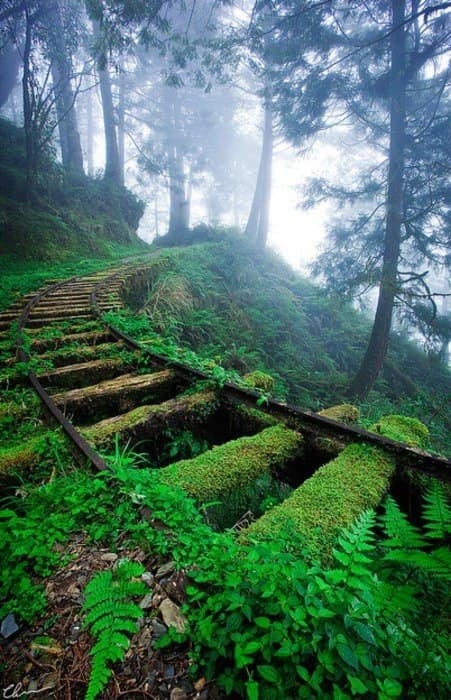









FTA: “Kenya installs the first solar plant that transforms ocean water into drinking water, and it could be the solution to the global lack of water
The Earth is a watery place. In fact, 71 percent of our planet is covered in water [1]. Despite this, one in nine people do not have access to safe drinking water – that’s around 785 million people [2].
The trouble is, 96.5 percent of all Earth’s water is found in the oceans in the form of saline water, and is not drinkable for humans. That only leaves us with rivers, lakes, and groundwater to satisfy our water needs [1].
According to the World Economic Forum, the global water crisis ranks as the number four risk in terms of impact on society [3]. Let’s face it – humans need water to survive.
If you’re reading this from Canada or the United States, you may not understand this crisis on a personal level. After all, you can turn on a tap and have safe drinking water instantly start flowing from the faucet. This, however, is not the case for billions of people living on other continents. One NGO (Non-Government Organization) is trying to change that.
GivePower
Give Power’s mission is to install solar energy technologies that will bring essential services to developing communities in need [4]. Their most recent break-through project installed a solar-powered desalination system to bring clean, healthy water to the people in Kiunga, a rural village in Kenya [4].
With this technology, the salty ocean water will now be a viable source of water for the people living in this village. The system is capable of producing about 70 thousand litres or drinkable water every day, which is enough for up to 35 thousand people [4].”
GivePower
Do note that they are not yet rated on Charity Navigator
hm, i feel like there’s a big problem when we try to visualize a sort of “solarpunk”-like society where we assume that every place a gonna be a grassy, tree-fillled, green city and that’s like fine and all but it’s very inauthentic to the diverse landscapes of our planet. for example, i live in southern california and ive seen trees and grass but i’ve also seen desert with cacti and bushes and dry land. when we associate our future, our “progress”, with a certain landscape we are not treating the land with the respect it deserves. deserts, plains, mountains, marshes are all apart of the world we live in and we need to invision a future with those lands too
also with all this in mind, a lot of this aesthetic and line of thinking can be damaging to indigenous communities. thinking the desert is just “empty space” and thinking the plains should be replaced with forests go hand-in-hand with colonialist ideology. no land is empty land, it is always someone’s home. we need to make space for indigenous people in our solarpunk, cottagecore, vegan, etc. ideologies if we ever want to truly make progress and not perpetuate the same shit with a different brand on it